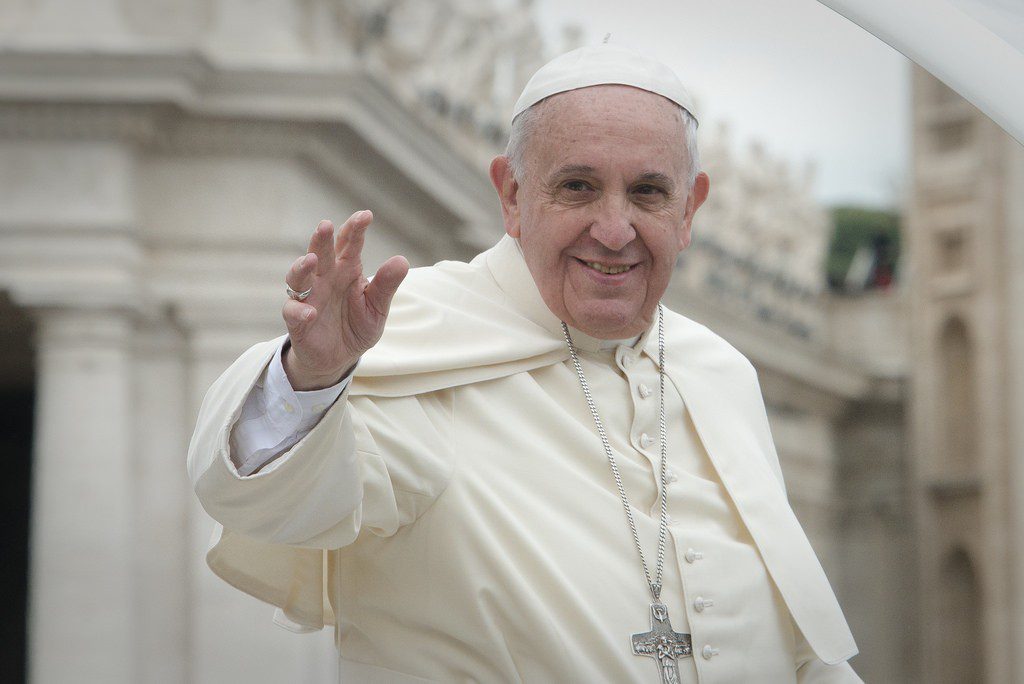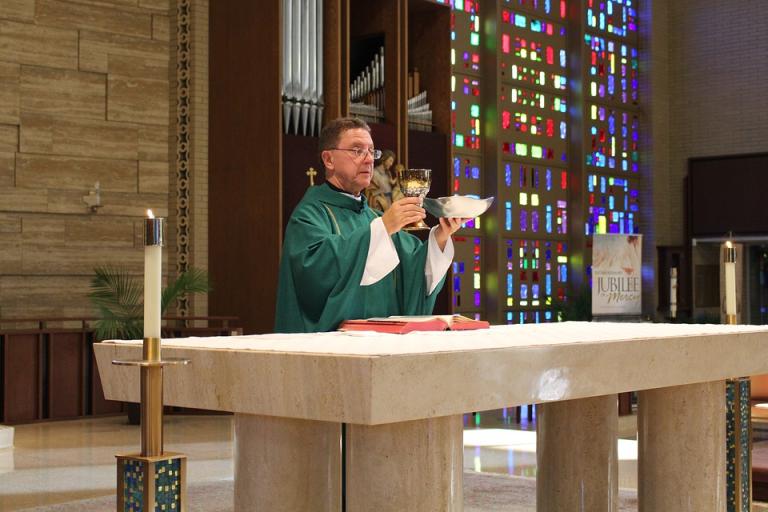Over and over again, the Pope says things which make “traditional”/ “orthodox”/ “conservative” Catholics want to bang their heads against the wall. It appears that he is deviously attempting to change church doctrine, one step at a time, that he is acting as a dictator, that he is cruel and vicious towards traditionalists.
But what if what’s really happening is that he just isn’t that bright? Sure, his writing “sounds smart” but in my view (though I acknowledge that his words are always in translation it’s possible that the tone is lost) his texts always come off to me as “trying to sound smart” — in part by stringing together endless quotations — rather than really being profound.
Fundamentally, what characterizes higher levels of intelligence, and wisdom in the broadest sense, is not “you do a better job solving math problems.” A key differentiator, it seems to me, is the ability to think about the future and the past, and alternate scenarios, and ways in which other worlds, people, cultures are different from your own, as part of an overall ability to reason abstractly. Perhaps what I want to express is also the issue of “theory of mind,” the ability to understand that how other people feel about something is not necessarily the same as how you feel.
Consider the Fiducia Supplicans uproar. What did the Pope intend when he approved of the idea of blessing same-sex or “irregular” opposite-sex relationships? Did the Pope intend that the relationship of the same-sex couple be blessed? Did he imagine you could bless a “couple” without blessing the relationship itself? What would it mean to “bless without approving”? As far as I can tell, he approved of this plan without having thought through all of this, let along without the awareness that African bishops would find it outrageous or that the Germans would consider it a sign-off of their plan to provide blessings of gay unions.
Or consider his suppression of the Latin Mass and his constant attacks on Catholics of a traditionalist bent, whom he calls “rigid” when he doesn’t find a more mean-spirited term to use. Maybe he’s an ***, but maybe he just is not smart enough to understand what motivates these people.
Or how about the economy, where over and over his statements seem to show an inability to understand how economies actually work, with pretty much the same inability that has caused Argentina to be in such poor condition?
Or his change to the catechism about the death penalty, in which he revised the prior statement that, generally speaking, in our modern times, the conditions in which the death penalty would be acceptable, no longer exist, into a blanket statement that the death penalty is “inadmissable”?
Here is the revised text:
Today, however, there is an increasing awareness that the dignity of the person is not lost even after the commission of very serious crimes. In addition, a new understanding has emerged of the significance of penal sanctions imposed by the state. Lastly, more effective systems of detention have been developed, which ensure the due protection of citizens but, at the same time, do not definitively deprive the guilty of the possibility of redemption.
Consequently, the Church teaches, in the light of the Gospel, that “the death penalty is inadmissible because it is an attack on the inviolability and dignity of the person”, and she works with determination for its abolition worldwide.
The very statement that “more effective systems of detention have been developed, which ensure the due protection of citizens” is the sort of inappropriate blanket statement which, to me, shows an inability to recognize the possibility that circumstances may change or be different elsewhere. Does he imagine that a future Pope would re-revise this if a historically-Catholic country falls into a state of chaos in which those “more effective systems of detention” are nowhere to be found? It’s “arc of history” thinking, the idea that things will always change “for the better,” never get worse.
(Side note: we have just had an illustration of this very issue, with reports of a mass prison break in Haiti as gangs rampage across the country. It is clearly not the case that Haiti has been able to “effectively detain” its criminals.)
How about his thoughts on just war? This is something I came across a while back, that I thought was pretty concerning. There was a statement somewhere about the Pope disapproving of the idea of the “just war” and stating, in the context of the war in Gaza, that all war is always bad, with maddening vagueness about a nation’s need to defend itself. In trying to find out what exactly he said, I came across a piece from 2022, at CNA, “Pope Francis: ‘I believe it is time to rethink the concept of a just war’“, describing an interview in which he seemingly tried to have it both ways, both accepting a nation’s right to self defense but nonetheless claiming that “Resolving conflicts through war is saying no to verbal reasoning, to being constructive. … War is essentially a lack of dialogue.” It seems naive, at best, to believe that some meaningful number of wars could have been avoided by “dialogue,” as if it was all a matter of misunderstanding, rather than due to an aggressor who wanted to conquer another territory.
And one paragraph in particular was concerning:
“And when the anniversary of the landing in Normandy was commemorated, I thought of the 30,000 boys who were left dead on the beach. They opened the boats and said, ‘get off, get off,’ they were ordered while the Nazis waited for them. Is that justified? Visiting military cemeteries in Europe helps one realize this,” he said.
What the heck does he mean here? It sure sounds as if he believes that the loss of life was so great that the Allies should not have resisted the Nazis. That’s absurd. In my mind, that’s again the sort of thing that you conjure up if you just can’t think and reason through things well enough.
Once again, the Pope caused a stir with his comments that he hopes Hell is empty.
That’s absurd.
Yes, there’s a pious prayer, “lead all souls to Heaven.” And some nice words in the catechism about hoping that “all may be saved.” But that’s a sort of future tense hope, and a tidy sort of expression that salvation is offered to everyone. It is not logical to take that pious hope and reverse it into history, because we know that there have been a great many human beings who lived lives of cruelty and, indeed, demonic acts, and it defies reason to believe that each and every one of them would have repented at the end of their lives. It also counters actual scripture, where Christ actually said that real people would be in Hell.
But here’s what was reported back in January:
When asked by the interviewer, Fabio Fazio, how he “imagines hell,” Pope Francis gave a short response.
“What I am going to say is not a dogma of faith but my own personal view: I like to think of hell as empty; I hope it is,” Pope Francis said.
And yet in that very article was a statement that
Pope Francis has previously spoken about the existence of hell in public speeches during the past 10 years of his pontificate. In March 2014 he said in an address that members of the Mafia should change their lives “while there is still time, so that you do not end up in hell. That is what awaits you if you continue on this path.”
So in the end, when you consider the various conspiracies that the pope is attempting to change Catholic doctrine, it begins to seem far more plausible to me that he is trying to be far more clever than he is actually able to, than some more nefarious purpose. Though, of course, it could be both . . .












